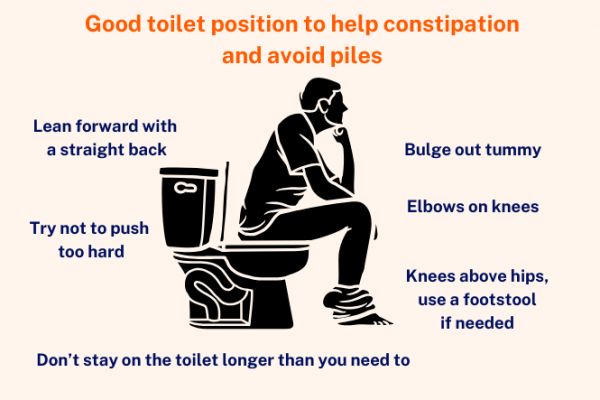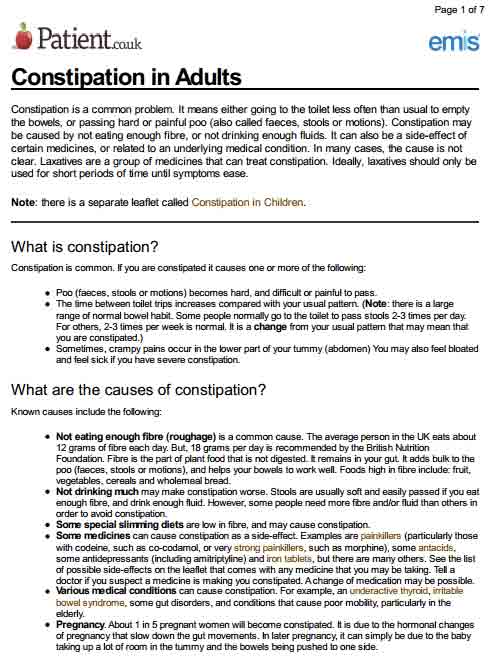These things can all cause constipation:
- Not enough fibre in your diet.
- Not drinking enough water.
- Not moving around enough.
- Not going to the toilet when your body tells you it’s time to go.
- Medical problems, eg, an underactive thyroid, irritable bowel syndrome or spinal cord problems.
- Pregnancy.
- Weight loss diets that are low in fibre – often high protein diets.
- Overuse of laxatives.
- Medicines:
- codeine, panadeine or tramadol for pain.
- amitriptyline or nortriptyline used for chronic pain, sleep or depression
- antacids containing aluminium
- iron and calcium supplements
- diuretics, eg, indapamide and bendroflumethiazide for high blood pressure
- calcium channel blockers, eg, amlodipine, felodipine and diltiazem used for high blood pressure.



 Image credit: Healthify He Puna Waiora
Image credit: Healthify He Puna Waiora




